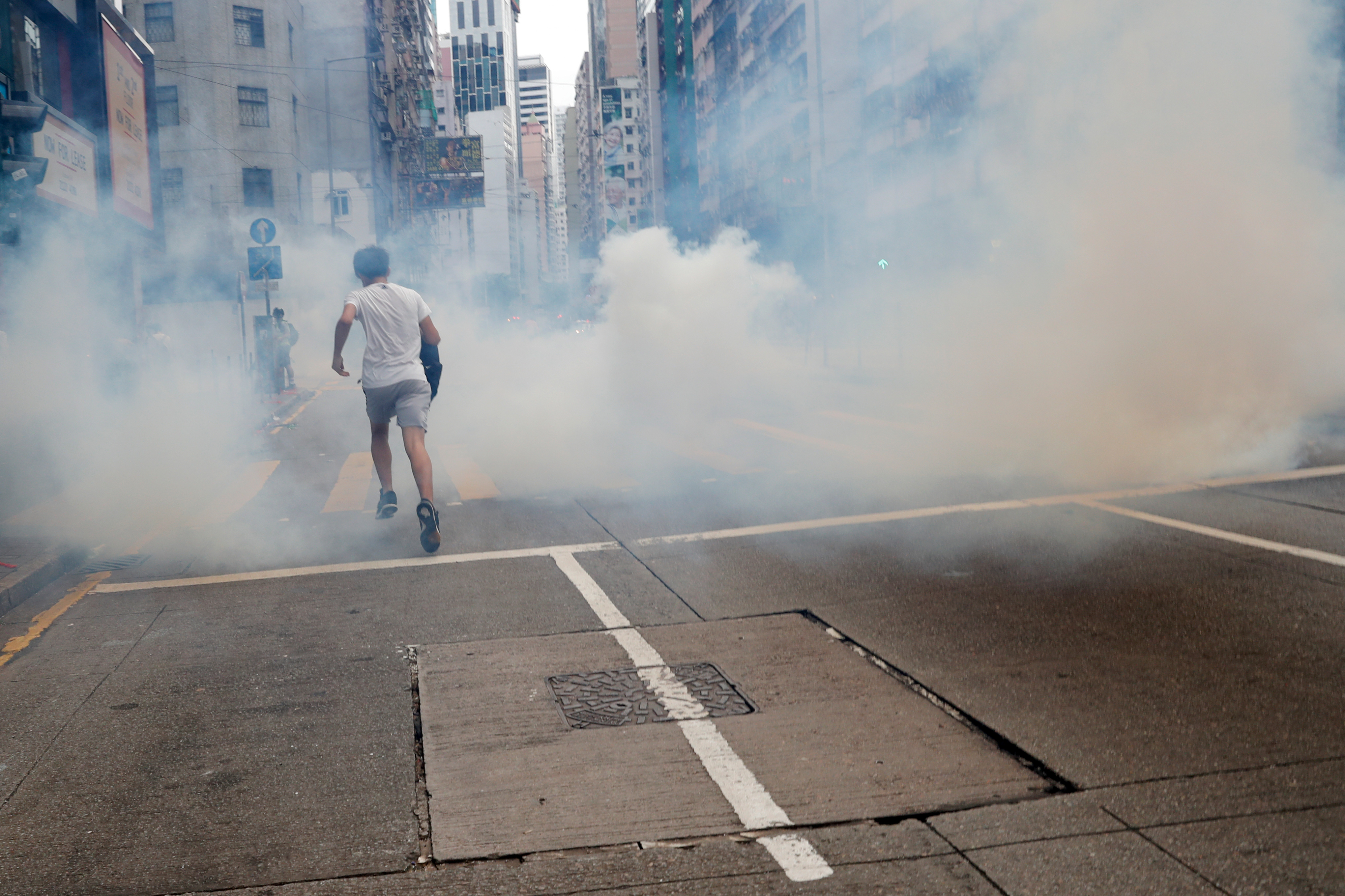In this piece
A toothy issue: Hong Kong, bias and misinformation

An anti-government protester runs away from tear gas during a march against Beijing's plans to impose national security legislation in Hong Kong, China May 24, 2020. REUTERS/Tyrone Siu
In this piece
As a Mainlander living and working in Hong Kong as a journalist, I stopped speaking Mandarin a long time ago.
With the protests, language became a flashpoint. On a sunny day in the Financial District, a mainland-born JP Morgan banker unknowingly walked into a protest when he left the office for lunch. In a video that would soon go viral, you could see him trying to get back into the office building holding his lunch box. He was surrounded by protesters and photographers: nervous and agitated.
The video doesn't show why he had attracted so much attention but right before he could get through the door he turned towards the crowd. In an explicable move that would cause so much bad blood in the months to come, he shouted to them in Mandarin: “We're all Chinese!”
In case you've been told that the Hong Kong protest was about extradition, or police brutality, or housing prices, or the lack of job opportunities... all of that is true.
But that's also not really the point. What people are fighting for is an identity unique to Hong Kong, and different from the rest of China. So you can see how precarious it is for a Mainlander to yell to Hong Kong protesters that they were but all Chinese. Those were fighting words.
The crowd went nuts. The chant you hear in the background: that's the protesters telling the young man to go back to China. The photographers closed in on him once again, hoping to capture a dramatic moment. An older white man with a camera pushes the door to the building shut right as the young man was about to go through. The young man was startled: he couldn't work out what to do with this man whose camera was in his face waiting for him to react. And, in that moment, a protester ran up and sucker-punched him from behind.
The episode incensed the Chinese internet. “You get beaten up for speaking Mandarin on your own soil?” one viral past post asked. And the presence of the foreigner didn't go unnoticed: “Victor Mallet, the Financial Times," the post went on to identify him without any proof. “Sub-human scum!” it exclaimed in the end.
Except, it wasn't Victor. Because I knew Victor. He had been banned from entering Hong Kong months before after hosting a dialogue at the Foreign Correspondents Club with an activist advocating Hong Kong’s total split from China.
You see the logic here: wouldn’t it be convenient if the person who somehow led to the beating of a patriotic young man is also the person who's actually trying to help split Hong Kong from China? Because then it all makes sense: It wouldn't be so much a pro-democracy movement but rather a foreign-directed covert campaign to undermine China.
Yes, too convenient. I didn't understand why anyone with an average IQ couldn’t see that. “Oh, come on,” I posted on WeChat. “Anyone spreading that Victor Mallet fake news, you don't deserve to be my friend.”
A few minutes later, my dentist left a message. It said: “I don't care to be your friend. Half your reporters in Hong Kong should be executed anyway.”
I guess I need a new dentist.
Hear Wei Du's full report on building bridges in Hong Kong here, and download the full transcript of her audio paper below.

